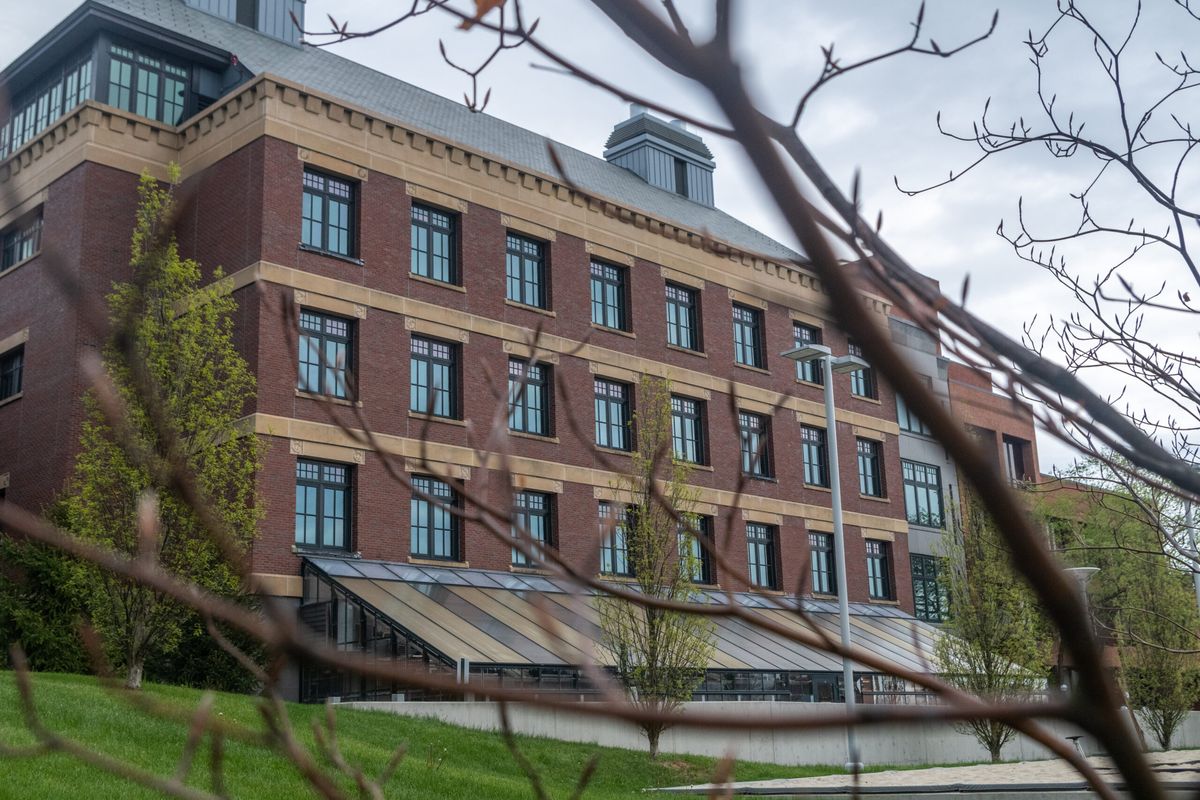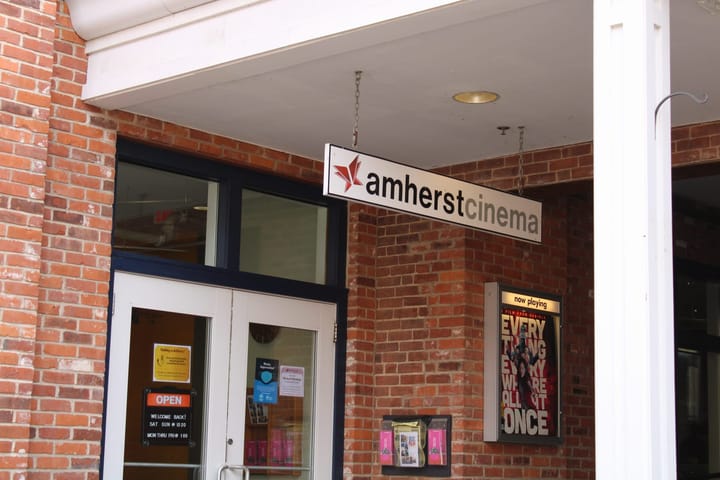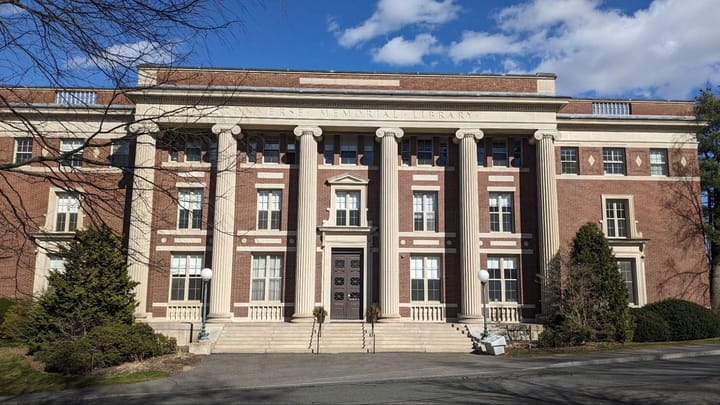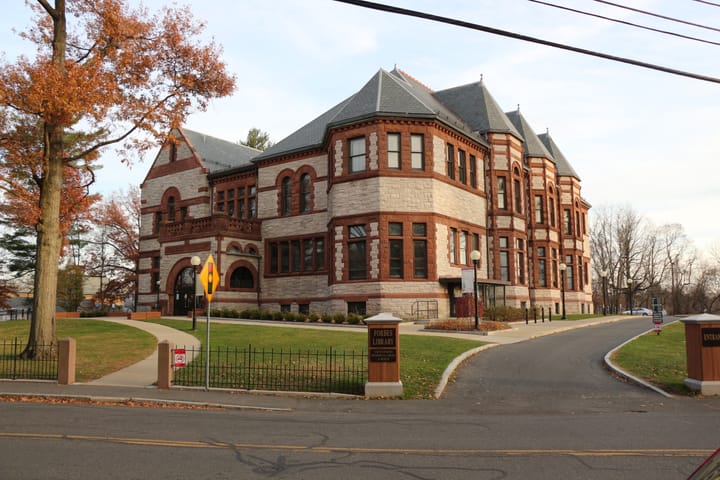In Light of an Apparent Double Standard, Students Call for Greater Transparency on Covid Rules Enforcement

As the college entered stage 2 of its on-campus student move-in plan last week, concerns about the transparency and enforcement of Covid-19 violation protocols came to a head. Prompted by an incident in which three international students — two of whom were Black — were asked to leave campus on Feb. 23 due to dining in a room together without masks in the quarantine period, over 200 students signed onto an open letter which decried “the college’s secretive attitude towards [Covid] rule enforcement,” arguing that it allowed for inconsistent and discriminatory practices that disproportionately impacted Black and/or international students.
Since students first arrived back on campus in the fall semester, the college has been stringent with its Covid rules, developing a “bubble” to prevent community spread. However, such rules involved the case-by-case evaluation of violations, which meant that, due to privacy concerns, the consequences of most violations remained undisclosed to students.
For the first week of the spring semester, students were required to quarantine alone in their dorm rooms until they received three negative test results, with gatherings of any size strictly prohibited, as stated in several emails from Dean of Students Liz Agosto. Agosto also noted that “due to the seriousness of this quarantine to our ability to transition safely to on-campus learning, violations of quarantine will likely result in removal from campus housing.” This represented a shift from the tiered system for addressing infractions, which the college used for the entirety of the fall semester and the spring semester outside of the quarantine period.
Accordingly, since the three international students were reported for violating Covid rules before quarantine was over, the Office of Student Affairs (OSA) assessed that they should be asked to leave campus. The outcry came in light of other, larger incidents, including parties and large gatherings in Cohan, Morris Pratt and Hitchcock Dormitories, where students — many of whom were white and affluent — carried much more significant risks for community spread, but were not sent home. For those who signed the open letter, the situation presented a double standard, which outwardly appeared to be based on bias by race and immigration status, among other things, and thus demanded clarity apropos rules enforcement.
“While it is true that the college is fully entitled to enforce their policies in any manner they see fit, it is also a responsibility of the administration to ensure that rule, enforcement is carried out in a fair and equitable way,” the letter read. “Certain groups of students (e.g. white, domestic, athlete) who are found in violation of the college’s policies are generally given a ‘warning’ even for transgressions that affect the safety of a larger number of individuals within the Amherst community, such as parties or large gatherings. By contrast, offenses much less consequential, such as eating dinner together, result in expulsion from campus when perpetrated by Black and/or international students.”
Jonathan Paul ’22, one of the authors of the open letter, noted that “if this were an isolated incident, I don’t think that there would have been so much confusion and outrage over it, but it’s the fact that it hasn’t been an isolated incident. There have been several instances of students infringing on the college’s Covid policy during both the first and second week.”
“I call it an open secret, because it’s something that we all know and talk about on campus. There seems to be an appearance of unequal treatment in the way that punishments for infringing on the Covid policy are being dished out,” he added. “There’s just such a lack of transparency, that there’s no way for us as the student body to feel like there’s any sort of accountability. There’s also no official appeals process. So when I heard about this [incident], I was so frustrated, and I didn’t know who to turn to because there’s no support or anything.”
Administrative Response
Agosto, who is “the ultimate arbiter” in deciding who faces removal from campus housing, reversed the decision to remove the three international students on Feb. 24, and subsequently sent out an email in response to the concerns expressed in the open letter on Feb. 25. In it, she noted that “while I have strived to be clear and thorough in my communication to all of you, it is apparent that gaps remain and that a reset is needed around expectations and accountability,” and proceeded to share a rubric detailing the consequences that would be incurred from specific violations.
The rubric listed a set of violations that would likely result in removal from campus housing, including: if a student “misses three tests in a four-week period or six tests during the course of the semester”; if a student leaves campus without authorization; if a student invites a guest onto campus; and if a student doesn’t comply with public health directives.
Additionally, in response to allegations of bias by race or international status, Agosto noted that “after review of the data at Amherst from this past fall until now around Covid allegations and outcomes, there is no evidence of differences in outcomes based on identity.” She later said that a total of six people have been removed from campus housing for violating Covid rules between the fall and spring semesters, and that four of them were white, one of them was a person of color and another one of them was an international student.
In a separate correspondence with The Student, Agosto added that larger violations, such as parties, did not result in the removal of students from campus because the OSA “did not receive specific information about the events.”
Agosto also attended an Association of Amherst Students (AAS) meeting on March 1, where she fielded questions about the college’s Covid rules enforcement with Chief Student Affairs Officer Karu Kozuma and Chief of Police and Director of Public Safety John Carter.
There, she reiterated that the actions the OSA can take in investigating Covid violations are largely limited to the reports that they receive, and she also lamented aspects of the current structure. “I hate the Covid report,” she said. “I also don’t love that people can submit it anonymously.”
More, she revealed that during the fall and spring semesters so far, there have been 280 Covid violations and 250 people identified as violating Covid policies. She also noted that, of the students caught violating Covid rules, 64 percent were male, 54 percent were white and 36 percent were athletes.
The Role of the Student
The delicate balancing act of Covid-19 guidelines also complicates the role of the CA. One article in The Student last fall, for example, noted that ResLife carries much of the burden of enforcing Covid-19 rules, placing CAs in the tough position of policing their peers. For Eunice Daudu ’21, who is Black, the pre-Covid era proved less complicated; she knew that reporting a party or disturbance would usually result in the slap on the wrist. In this new Covid-19 moment, however, the consequences are less clear.
“There used to be an amnesty that has usually been the standard enforcement in prior years, but now it’s just really confusing. It’s unclear to me as a CA what the end result [of a report] would be,” she said. “I knew [pre-Covid] that if I reported my first-year residents for partying, nothing would ever happen to them … but now I don’t want people to get kicked off campus.”
One thing, however, has remained consistent as an unspoken rule: Not to report anything that would place students — and particularly Black students — at unnecessary risk.
“The vibe of being a CA is to not report anything unless it’s so egregious. The people who don’t really have that memo are the white CAs … as a person of privilege, they’ve never had to be cognizant of these things,” Daudu said.
Daudu also sent an email to Agosto, along with Kozuma and Director of Res Life Andrea Cadyma, addressing the burden the college has placed on CAs.
“The role of the Community Advisor is to foster inclusive and equitable communities. We exist to assist all students through their college experiences by creating a welcoming space in our resident halls. We also uphold and enforce the policies of the college,” she wrote. “However, when the enforcement of those policies fall on racial or socioeconomic lines it is not surprising that many of the CAs hired (especially those of color) decide to ‘not be a snitch.’ A student leader can only be as inclusive and equitable as the backing institution allows.”





Comments ()